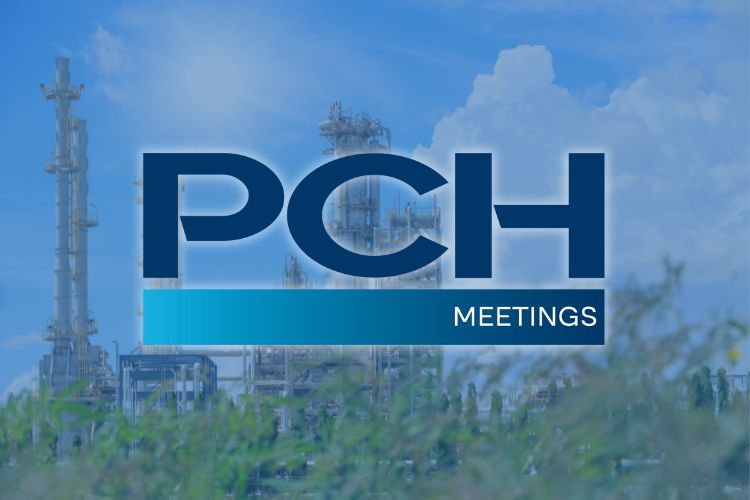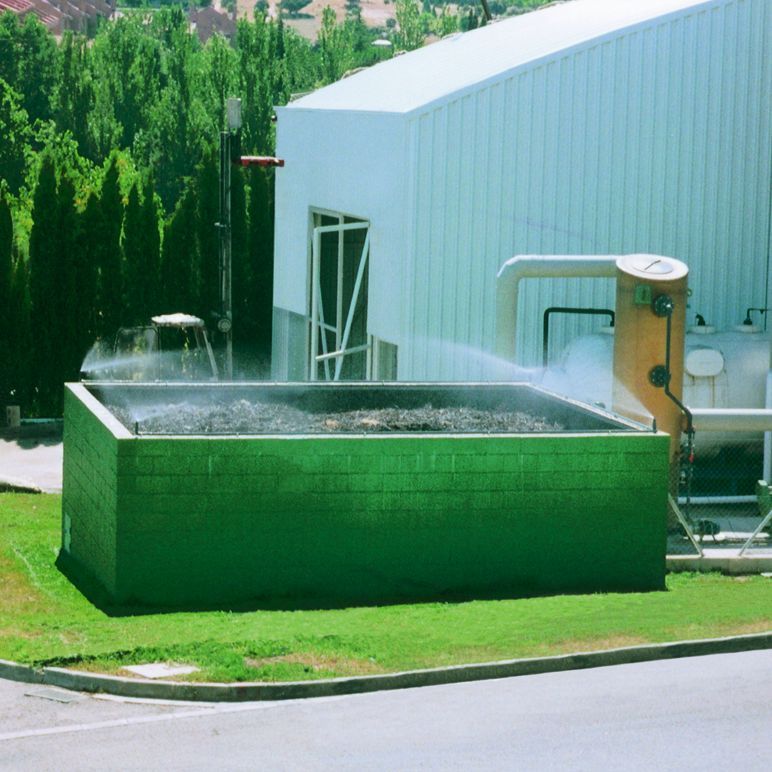Decarbonisation as the Urgent Challenge for the Chemical Industry
The chemical industry is entering one of the most transformative decades in its history. As regulatory pressure intensifies and global climate targets advance, operators across Europe and beyond are required to significantly reduce emissions while maintaining production efficiency and economic viability. This challenge is particularly demanding for the chemical sector, where high-temperature reactions, corrosive compounds and energy-intensive processes make the path to decarbonisation complex and costly.
Within this context, the discussions taking place around events such as PCH Meetings 2025 highlight a clear industry-wide consensus: emission control technologies will play a decisive role in bridging the gap between current fossil-fuel dependence and future low-carbon operations.
While long-term solutions — including electrification, green hydrogen, and process redesign — are progressing, many of them require substantial investment, infrastructure adaptation, and multi-year deployment. In contrast, gas scrubbing systems offer an immediate and effective method to reduce harmful emissions, allowing chemical plants to move towards compliance with evolving environmental standards without disrupting ongoing production.
As the sector transitions, the adoption of advanced scrubbing, biofiltration and gas treatment technologies stands out as a practical and impactful strategy to support decarbonisation objectives.

Why Emission Control Matters in the Path to Net-Zero
Persistent dependence on fossil-fuel-based processes
Despite growing commitments to climate neutrality, the chemical industry remains structurally dependent on fossil-based energy and feedstocks. Key processes such as steam cracking, ammonia synthesis, methanol production, chlorination or sulphur conversion require high temperatures, high pressures, and inherently release volatile and corrosive emissions.
These operations — many of which have been optimised over decades — cannot be redesigned overnight. Steam crackers alone, which produce foundational molecules like ethylene and propylene, account for some of the highest energy demands in the sector. Similarly, large-scale ammonia and methanol plants continue to rely on natural gas as both a feedstock and a heat source.
As a result, even companies committed to climate neutrality must manage complex emissions that include:
Without effective abatement, these emissions prevent plants from meeting regulatory expectations and from progressing toward meaningful decarbonisation.
Immediate vs. long-term solutions
While long-term efforts — electrification, alternative feedstocks, hydrogen integration, or next-generation reactors — are underway, these technologies require major investments and infrastructure transformation. Their implementation is measured in years or even decades.
In contrast, gas scrubbing technologies offer:
Scrubbers, biofilters, biotrickling systems and adsorption units can be deployed in parallel with traditional processes, mitigating environmental impact while companies work toward broader transitions.
For this reason, emission control is not a secondary measure — it is a core pillar of the decarbonisation journey. It enables chemical plants to operate responsibly today, while gaining time to invest in the transformative technologies of tomorrow.
Gas Scrubbing Technologies: A Critical Tool for Decarbonisation
How Scrubbers Reduce Environmental Impact in Chemical Plants
Reduction of Direct CO₂ and VOC Emissions
Gas scrubbing systems play a decisive role in reducing Scope 1 emissions, which are the direct emissions released by industrial processes. Although scrubbers do not eliminate CO₂ generated by combustion, they significantly decrease indirect carbon impact by removing pollutants that contribute to high-carbon operational penalties, flaring events, and inefficiencies in thermal processes.
Furthermore, many volatile organic compounds (VOCs) — solvents, hydrocarbons, aldehydes, ketones — are strictly regulated due to their climate and health impact. Advanced scrubbers and adsorption units help plants:
By controlling emissions efficiently, plants take a measurable step toward climate neutrality and improved environmental performance.
Enabling Cleaner Processes During Transition
One of the greatest challenges in the chemical sector is that many emission-intensive processes cannot be replaced in the short term. Transitioning from fossil-fuel-based operations to electrified or renewable systems requires technological evolution, investment, and major redesign.
Scrubbing technologies, however, provide a transition bridge. They allow plants to:
During this transition, emission treatment becomes the most accessible and realistic solution for reducing the environmental footprint while long-term technologies mature.
Supporting Circularity
Scrubbing systems also support circular economy strategies in chemical and environmental industries. Depending on the configuration, they enable recovery and reuse of materials that would otherwise become waste.
Examples include:
Circularity is becoming a regulatory expectation and a competitive advantage. Scrubbers — especially when integrated with biofiltration or biotrickling systems — help facilities recover more resources while emitting less, reducing operational costs and environmental liabilities.
Tecnium’s Gas Treatment Solutions for a Low-Carbon Future
With more than 45 years of experience in corrosion-resistant process equipment, Tecnium has developed a complete portfolio of gas cleaning and environmental technologies designed to meet the industrial challenges of today’s transition toward low-carbon operations. These systems support chemical plants, petrochemical facilities, water treatment installations and industrial manufacturers in reducing emissions while maintaining operational efficiency.
Insights from PCH Meetings 2025
PCH Meetings 2025 brings together leading decision-makers from the chemical, petrochemical, gas and pharmaceutical sectors, offering a strategic look at how European industries are approaching the transition toward cleaner and more efficient production models. The themes highlighted during this edition reflect the growing urgency for energy efficiency, emission control and decarbonisation technologies, reinforcing the relevance of solutions like those offered by Tecnium.
Tecnium’s biological solutions (TECNIUM-BIO and BIO-TR) are especially aligned with this transition, helping plants minimise both emissions and environmental impact.
Moving Toward a Cleaner Chemical Industry
The chemical industry is undergoing a profound transformation. Faced with regulatory pressure, global competition and the urgent need to reduce environmental impact, companies must balance operational continuity with technological innovation. While deep decarbonisation will ultimately require new production routes, alternative feedstocks and electrification, the immediate priority is to adopt effective emission-control solutions that enable plants to operate responsibly today.
Technologies such as chemical scrubbing, biofiltration, biotrickling and advanced adsorption systems give the sector the tools it needs to stabilise emissions, improve air quality and protect both workers and local communities. These solutions serve as a practical bridge between current fossil-fuel-based processes and the cleaner, more efficient systems that will define the industry in the coming decades.
For many operators, the path forward begins with modernising environmental infrastructure — capturing corrosive gases, reducing VOCs, improving odour control and increasing circularity. These improvements not only reduce emissions but also lower maintenance costs, extend equipment lifespan and ensure compliance with the rapidly evolving European regulatory framework.
The message emerging from PCH Meetings 2025 is clear: innovation in gas treatment and corrosion-resistant equipment is no longer optional — it is strategic. Companies that invest early in these technologies will be better positioned to meet environmental obligations, remain competitive and accelerate their transition toward a low-carbon future.
Work with Tecnium to Accelerate Your Decarbonisation Strategy
Achieving a low-carbon chemical industry requires technologies that are reliable, efficient and capable of delivering measurable environmental benefits today. Tecnium supports industrial operators around the world with corrosion-resistant equipment, gas treatment systems and turnkey emission-control solutions designed to meet the challenges of modern chemical production.
Whether your facility is seeking to reduce VOCs, control corrosive gases, improve odour management or implement biological treatment alternatives, Tecnium’s engineering team can help you identify the most effective solution for your specific process conditions.
If your company is preparing for new environmental requirements or planning investments in cleaner technologies, Tecnium is ready to assist.
Get in touch with our specialists to discuss your project, request technical specifications or schedule a meeting during PCH Meetings 2025 in Lyon.
Contact us to start your transition toward cleaner, more efficient industrial operations.




